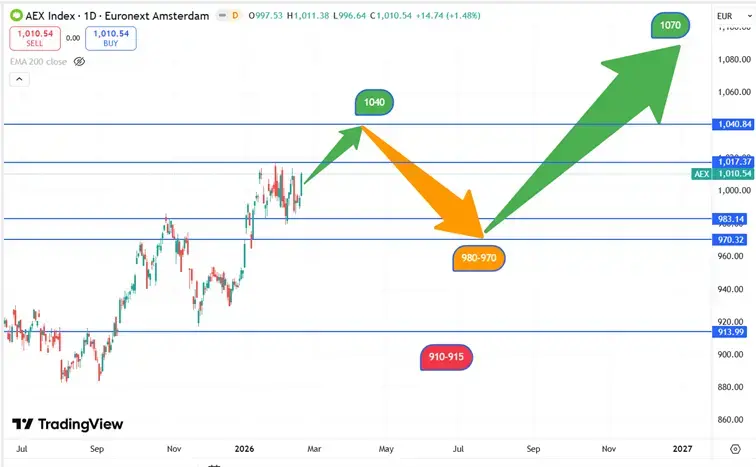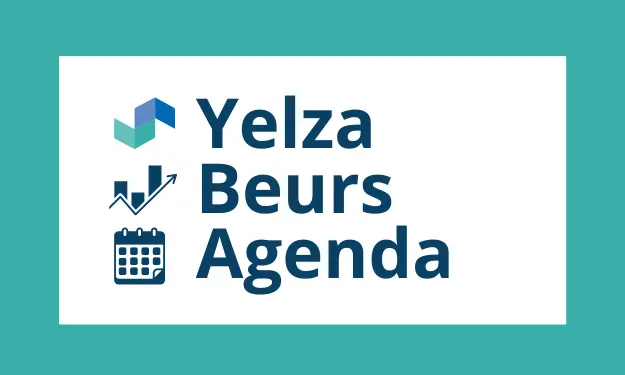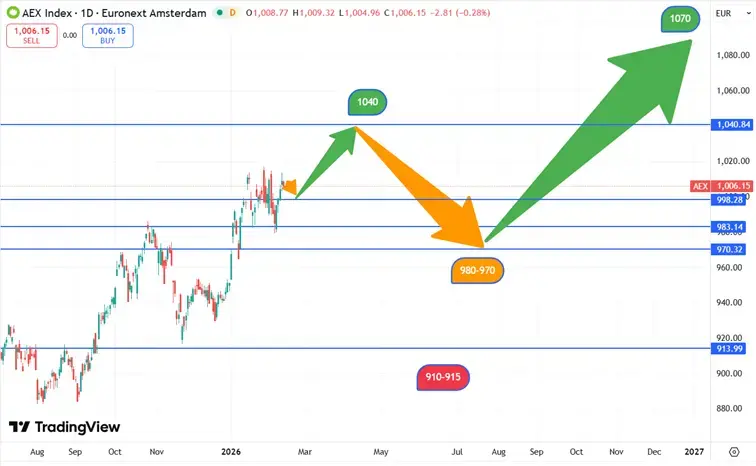Publication date: June 28, 2024
-1.webp)
KLM, who doesn't know it? The Dutch pride of aviation with its beautiful blue aircraft. In 2004, KLM merged with Air France. This merger was one of the largest in aviation history and resulted in one of the largest airlines in the world. Today the company employs about 78,000 people and makes a turnover of more than €31 billion a year. In the three years following the merger, the share price rose from about €70 to a record €200. This was in 2007. Examining the share price chart spanning the last 25 years opens the door to a plethora of puns and clichés; buckle up for the ride!, the ebb and flow of the market, and perhaps a "rollercoaster of share price fluctuations"....
In assessing the potential value of the current price hovering around €9, we delve into the underlying reasons for this unprecedented low valuation, conducting a thorough analysis encompassing both fundamental and technical aspects to draw a conclusive evaluation.
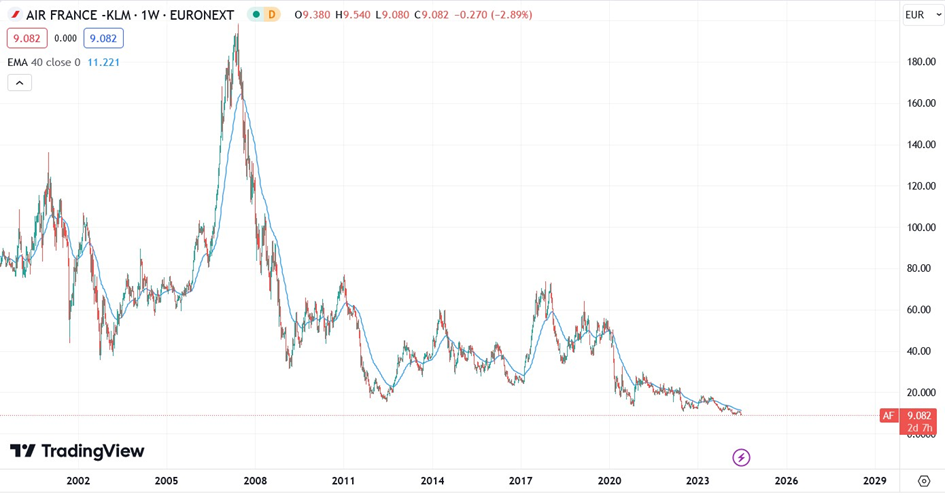
Current situation:If we zoom in on the price of the from 2023 we can see the course of the decline to its lowest level ever.
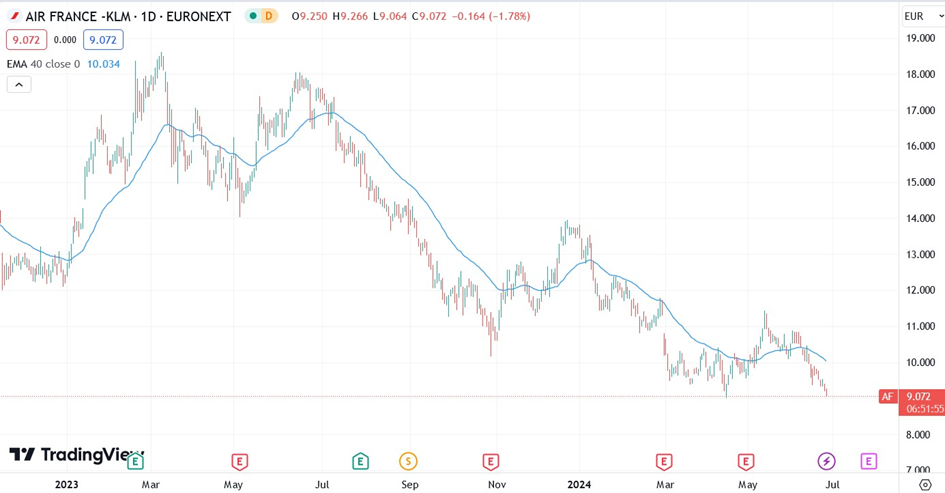
Air France-KLM shares have experienced a decline to their lowest levels in recent months due to several factors affecting financial performance and market perception. Below is a list of factors facing AirFrance-KLM.
Operational disruptions: The company faced significant disruptions, including strikes and technical problems with its aircraft. For example, a recent technical problem forced a KLM Boeing 777 to return to Amsterdam shortly after takeoff, highlighting operational challenges.
Financial Results: Financial performance for the first quarter of 2024 showed weaker-than-expected results. Although passenger revenues grew, operating results were negatively impacted by higher disruption costs and weaker cargo revenues.
Debt and Financial Stability: Air France-KLM's debt load remains a concern for investors. The company has significant net debt, which affects financial stability and investor confidence.
Analyst Ratings: Market analysts have mixed ratings on Air France-KLM, with some maintaining a "sell" rating due to concerns about profitability and financial health. JP Morgan: Maintains a "sell" rating, mainly due to concerns about long-term profitability. Bernstein: Offers a "buy" rating, but with caution due to market risks and operational challenges the company continues to face.
External factors: Broader market conditions, including tensions in the Middle East and rising operating costs, have also played a role in the stock's performance. These external factors add to the uncertainties facing the airline industry as a whole.
Air France-KLM is in a challenging position with significant financial and operational obstacles. Its future depends on its ability to deal efficiently with these challenges, improve its debt position, and take advantage of growth opportunities in the aviation market. Investments in sustainability and fleet modernization are positive steps, but the long-term impact remains to be seen.
However, some bright spots could lead to speculative buying considerations. There has been a strong influx of advanced ticket sales, indicating good summer holiday bookings and a positive near-term outlook. In addition, the stock is considered undervalued with a low price-to-earnings ratio (P/E ratio), indicating a potential buying opportunity.

.svg)
-1.webp)


.webp)

.webp)
.webp)

